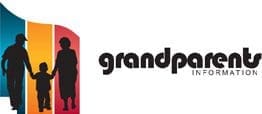Know the signs
Know the signs of elder abuse
Elder abuse is often hidden and goes unnoticed. Knowing the signs may help you recognise when someone needs support. Sometimes signs of abuse are subtle and can be mistaken for illness or ‘ageing’. It is important to remember though, signs are just that – signs! Noticing a sign does not always mean someone is experiencing abuse. Taking the time to notice and look out for older people is something we can all do to protect those we know and love.
What to look for:
Recognising a person’s emotions or psychological wellbeing
It is common for someone experiencing elder abuse to be affected emotionally/psychologically, no matter the type of abuse they may be experiencing. Everyone responds differently and people may display a wide range of emotions and changed behaviour. What to look for:
Anger, irritability, sadness, depression, anxiousness.
Apathy, withdrawal or reluctance to talk openly.
Fear or stress. In some cases this can lead to confusion and/or a person making contradictory statements.
Loss of interest in self, losing interest in normal daily activities.
Resignation to ‘the way things are’.
Changes to sleeping patterns/inability to sleep.
Recognising a person’s financial wellbeing
Signs of financial abuse might relate to an older person’s property, legal documents, money or other assets like a car or jewellery. What to look for:
Unpaid bills or strange transactions on bank statements.
An older person is consistently relied upon by others for financial support, which is never repaid.
An older person is regularly taken by someone else to a bank or ATM to withdraw money.
Sudden changes to legal documents such as a Will, Power of Attorney or property title deed.
Older person appears to be paying someone else’s bills/the other party is not contributing to shared expenses.
An older person is not able to afford basic items.
Bank card or bank book is used by someone else.
Missing possessions, assets, legal documents or ID.
Sudden changes to living arrangements/residence.
Recognising a person’s physical wellbeing
If you notice an older person’s physical health or hygiene seems to be diminished, it may be a sign of neglect, physical abuse or sexual abuse. What to look for:
Unexplained bruises, cuts or other injuries.
Sudden weight loss.
Signs that a person has been restrained (typically around a person’s waist or wrists).
Health concerns that seem to be untreated or easily prevented such as bed sores or untreated wounds.
Signs of blood on the body or clothing.
Poor hygiene. This might be a smell, dirty clothing, unwashed hair.
The person appears to be over-medicated, inappropriately sedated or lacking access to medication.
Taking notice of a person’s general living situation
You may also notice something about a person’s general living situation. It could be something that seems wrong or simply ‘missing’ – typically something that would be normal for the older person to function well and live a quality life. This could include taking notice of their household, whether it appears safe, who appears to be ‘in charge’ of household decisions, who lives with/visits the older person or something else in their daily life. Here are some common things to look for:
An older person’s choices and lifestyle appear to be directed by someone else – particularly by someone with whom they live with.
An older person’s household is unhygienic, squalid or overly cluttered.
An older person does not seem to have access to a phone – either because there is none or the phone is simply out of reach.
An older person does not seem to be able to leave their house or property.
A lack of aged care support for a person who struggles to maintain domestic household tasks and/or personal care.
A lack of basic medical aids to live a safe or quality life such as broken glasses, no mobility aids or hearing aids.
The main people in the older person’s life, particularly those they live with, struggle with gambling or substance misuse.
Older person does not receive visitors or have other social contact.
I think someone needs support, what do I do?
● If there is immediate risk, contact the police 000.
● Contact the Elder Abuse Helpline on 1300 651 192 or from interstate on 07 3867 2525.
● You can read more about calling the QLD Elder Abuse Helpline here.







